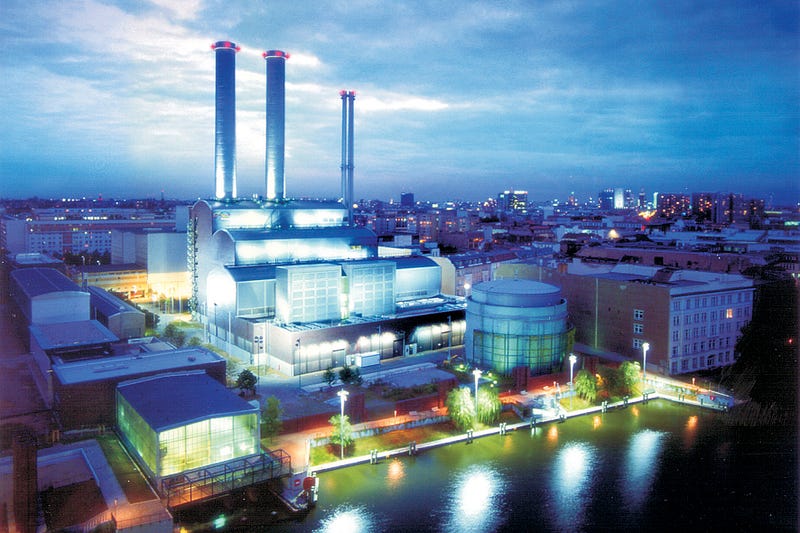What if you owned a share of your city’s electricity grid? Along with your fellow citizens, you could decide where your energy comes from, how much it costs and even receive a portion of the profits each year.
It sounds like a dream, but if the BürgerEnergie Berlin (BBE) initiative has its way, it could become a reality.
The concept works like this: In Berlin, the electricity grid is underground, a tangled network located below the streets. The city owns the streets and grants permission for a private company to own and operate the grid. Every 20 years or so, the concession contract comes up for renewal.
BBE was founded back in 2011 by Luise Neumann-Cosel. Luise found out about the contract process while working at local parliament, and realized it was theoretically possible for a citizens cooperative to tender a bid.
When it came time for the contract to be renegotiated in 2014, Luise and her team were ready.
To date, they’ve received 12 million Euros of pledged investment from around 3,000 residents. Interestingly, however, the process isn’t just about money. “The contract doesn’t necessarily go to the highest bidder,” Luise explains to dose. “The city is not selling the grid, but deciding who can own it. So other factors come into play.”

Vattenfall power plant. | http://powerplants.vattenfall.com/mitte
Initially, the idea for the initiative stemmed from a desire to raise awareness and apply direct political pressure. Vattenfall, the grid’s current owner, makes hundreds of thousands of dollars in profit every year and BBE questioned the justice of that setup. “We wanted people to consider whether the system now is fair, and what kind of role citizens play in the economy and our energy structure,” says Luise.
But as the initiative took shape, it became clear that a grid owned and operated by Berlin’s residents could actually come to pass. “One of the biggest steps forward so far has been the support of the new local government,” says Luise. In 2016, the city elected a coalition nicknamed Rot-Rot-Grün (Red-Red-Green). Comprised of Die Linke (the Left), Die Grüne (the Greens) and the SPD (Social Democratic Party), the group is sympathetic to the initiative’s goals and has promised its support.
Buying the grid will cost around one billion Euros, but BBE wants to partner with the city and put in about 100 million overall. “It’s a big number, but what we have already is a good start, and shows we’ll be able to raise a lot more if this becomes a reality,” says Luise. “The most important part is that we’ve proven it’s possible.”
Less than three percent of Berlin’s energy comes from renewable sources — a tenth of the national average. With a grid controlled by citizens, the city could catch up with the rest of the country by investing in green energy and local sustainability projects, as well as distributing a portion of profits to cooperative members.
Though the current contract came to an official end in December 2016, the grid is still up for grabs. Vattenfall wants to keep it, and is suing the city, in a move that will add years to the process— not to mention great cost to the city. One potential solution would be for the city to come to an agreement directly with Vattenfall — this would speed up the negotiation process, but it would also leave BBE in the dark.
Despite the setbacks, examples from other areas in Germany offer hope. In Schönau, a small town in the Black Forest, residents founded a cooperativein the aftermath of the the Chernobyl disaster. The cooperative took control of the grid in 1997 and today it supplies over 160,000 people with green energy. Following a referendum, Hamburg purchased the grid in 2013, but the citizens themselves are not directly invested.
Whatever the outcome of BBE’s efforts, Luise already considers the project a success.
“I think politicians are finally seeing they can’t just ignore the will of the people who vote for them,” she concludes. “Once you start noticing these opportunities, you realize you can make a difference. Your hands aren’t tied. Things can change.”